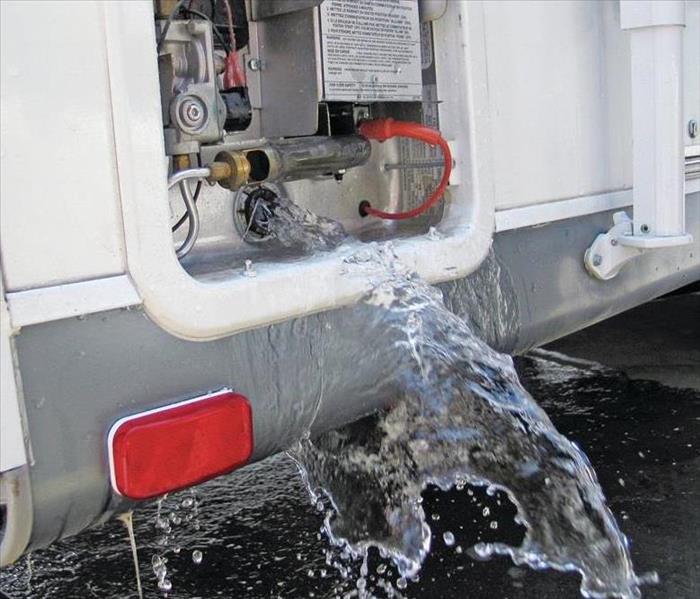Water Heater Safety. . . Get to Know Your Water Heater
2/28/2019 (Permalink)
When it comes to your water heater, the old saying “out of sight, out of mind”, should not be taken lightly. Water heater failure can cause flooding and even a fire and the following water heater safety tips can help to prevent a catastrophe. Nationwide Insurance suggests that getting to know your water heater parts and routine maintenance can help to keep your water heater safe and help avoid a disaster.
Water heater parts
A residential water tank can hold 40 to 60 gallons and needs to withstand typically 50 to 100 psi, Steel tanks are tested to handle 300 psi and have glass liners to keep rust out of the water, and insulation to surround the tank. Other parts to become familiar include:
- A dip tube to let cold water into the tank
- A thermostat to control the temperature of the water that is inside of the tank
- A pipe to drain hot water out of the tank
- Heating elements like those found inside of an electric oven
- A drain valve to allow you to drain the tank to move it or replace the elements
- A temperature or release valve that helps keep the tank from exploding
- A sacrificial anode rod, screwed into the top of your water heater and protects your heater from rusting
Some important facts to remember about your water heater.
Pulling up on the pressure relief valve or temperature valve handle to make sure water flows freely out and stops when you let go of the handle can help prevent tanks from exploding and should be tested annually.
Temperature settings vary on residential tanks, but the right temperature is at least 120 degrees at the tap, which you can test with a meat or candy thermometer. This temperature helps to kill germs and prevent children from being scalded. When you go on vacation, set the temperature lower to save money and reduce risk of problems while away.
Venting is important as a poor draft can cause fumes and carbon monoxide to reenter a room instead of exiting. Make sure the vent goes straight up and out without any dips and is the same diameter as the tank’s draft diverter.
Flushing the hot water through the drain valve annually will help to remove sediment buildup.
Extinguish the pilot light when handling flammable liquids or aerosol. If the water heater is in the garage, raise it to that the pilot light is 18” above the floor. This is to help prevent ignition of gasoline vapors that collect near the floor.
Strapping your water heater can help prevent it from falling over which could sever a gas line and cause an explosion.
Insulation may help reduce heat loss on the hot water pipe and “sweating” on the cold-water pipe.
Should you need water or fire damage cleanup and restoration in Elizabeth City/Outer Banks, call your 24-hour emergency service company, operating since 1997.






 24/7 Emergency Service
24/7 Emergency Service
